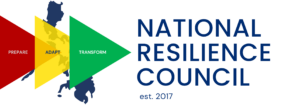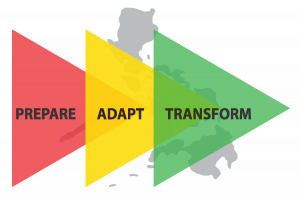The United Nations Office for Disaster Risk Reduction (UNISDR) and Private Sector Alliance for Disaster Resilient Societies (ARISE) in the Philippines, in partnership with SM Prime and the National Resilience Council (NRC), held the 7th Top Leaders Forum on 29 November 2018 at the SMX Convention Center in Pasay City.

“Disasters derail progress,” said SM Prime Executive Committee Chairman and NRC Co-Chair, Mr. Hans Sy, as he welcomed guests at the forum. “Active disaster risk reduction (DRR) collaboration will help bring about stronger communities and cities.”
In her message, UN Special Representative of the Secretary-General for Disaster Risk Reduction, Ms. Mami Mizutori, described the Philippines as a global frontrunner in pushing for the Sendai Framework for Disaster Risk Reduction, a non-binding agreement encouraging multi-stakeholder collaboration in reducing and managing disaster risks. “You have UNISDR’s full commitment in building a resilient, sustainable place for all.”

“The private sector has factored the cost of disruption, damage, relief and rehabilitation as part of the cost of doing business in the country.” Makati Business Club Chairman and NRC Vice-Chair Mr. Edgar Chua described the disaster resilience in the context of the private sector. “But with the increasing intensity of disasters and growing awareness that things can only get worse, a number of groups and stakeholders decided that it cannot be business as usual.” He added that the end view should then be becoming better and building better.
APEC Emergency Preparedness Capacity Building Center (EPCC) Executive Director Dr. Wei-Sen Li also commended the Philippines for its DRR efforts, mentioning the Taiwanese government’s ongoing collaboration—through its technical adviser, the National Science and Technology Center for Disaster Reduction (NCDR)—with Iloilo city as the local government unit (LGU) prepares to adopt Taiwan’s disaster risk assessment platforms and establish automatic weather stations, also with the help of the Taiwanese government. The forum aimed to highlight the role of PPPs in disaster risk reduction and resilience efforts in the Philippines, as illustrated in its central theme entitled “Changing the Game: Building a Culture of Resilience through Public-Private Partnership”.
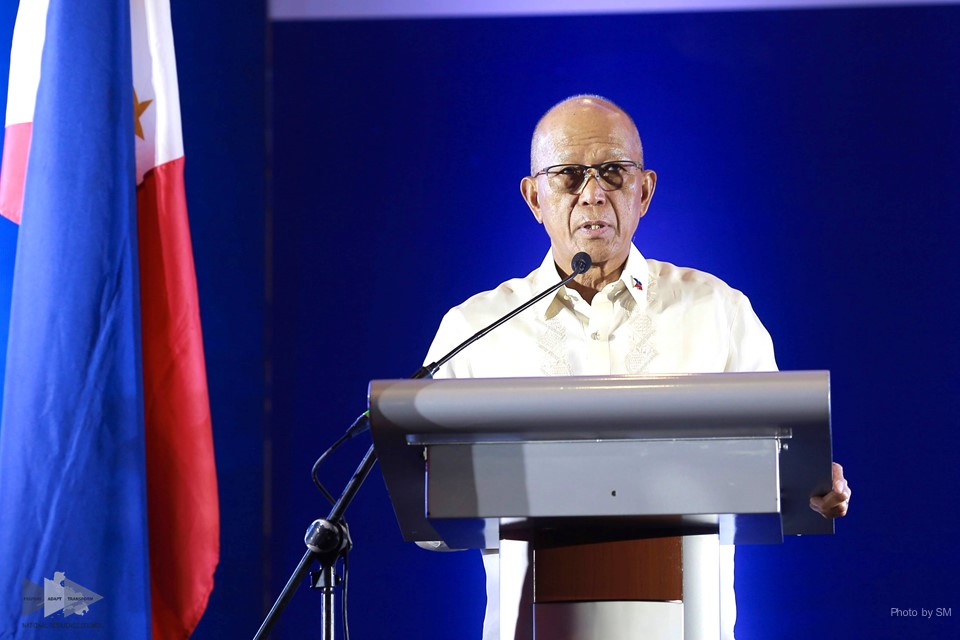
For Defense Secretary and NRC Co-Chair for Government Delfin Lorenzana, this is especially relevant to the country “as it calls for a change in our mindset and our behavior, particularly in addressing the problem piece-meal and leaving the responsibility on the shoulders of a few or of a particular sector of our society.”
Senator Loren Legarda also underscored its message of finding importance in creating a culture of resilience. “We do not only act when natural hazards are about to strike, but all our actions are already geared towards resilience.”
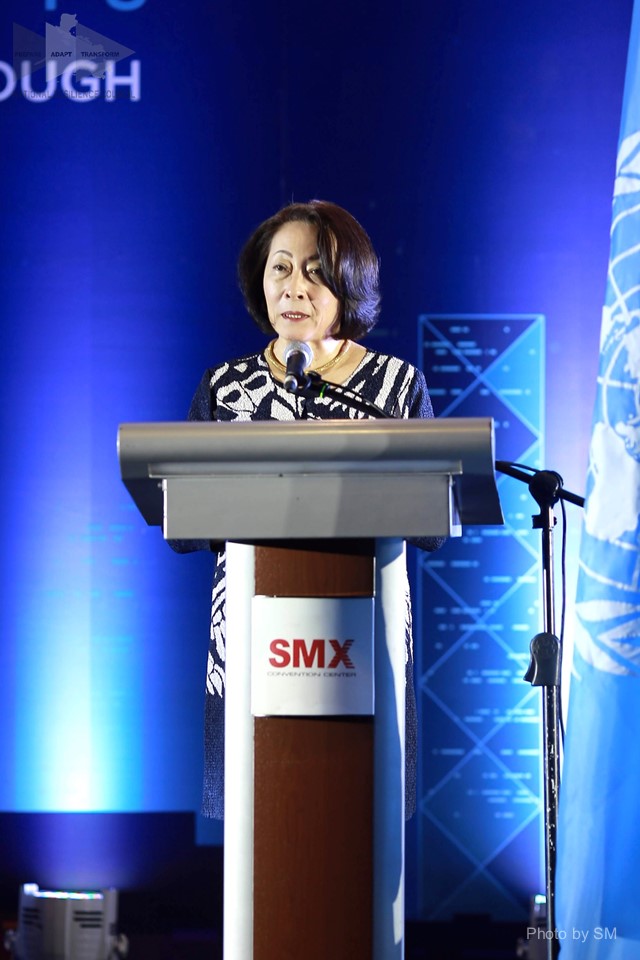
UN SRSG Mami Mizutori 
APEC-EPCC Executive Director Dr. Wei-Sen Li 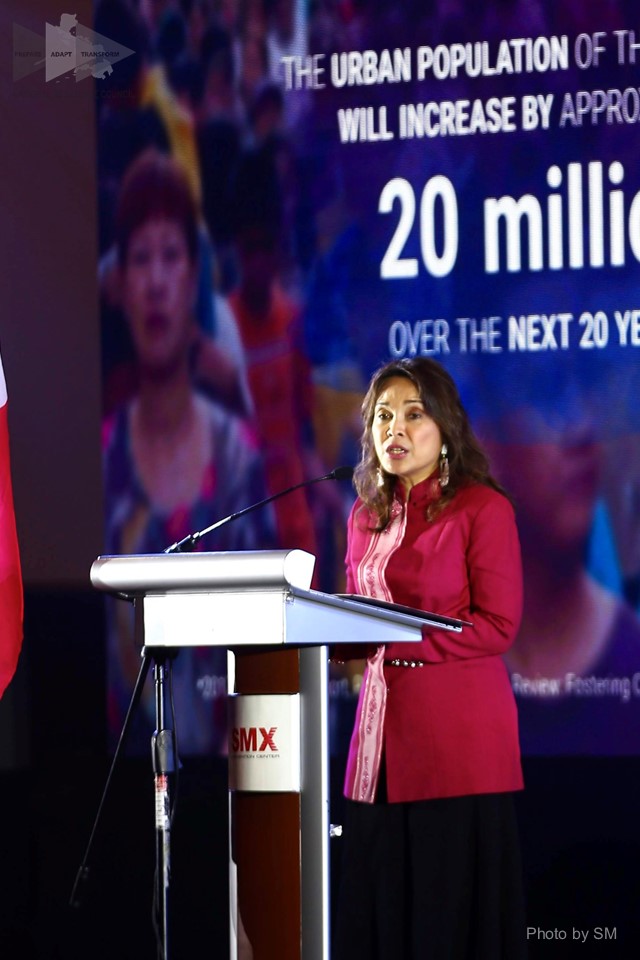
Philippine Senator Loren Legarda
The forum was split into four plenary sessions that tackled resilience in the contexts of local government, small and medium enterprises, human security and disaster risk reduction investments.
Local Government
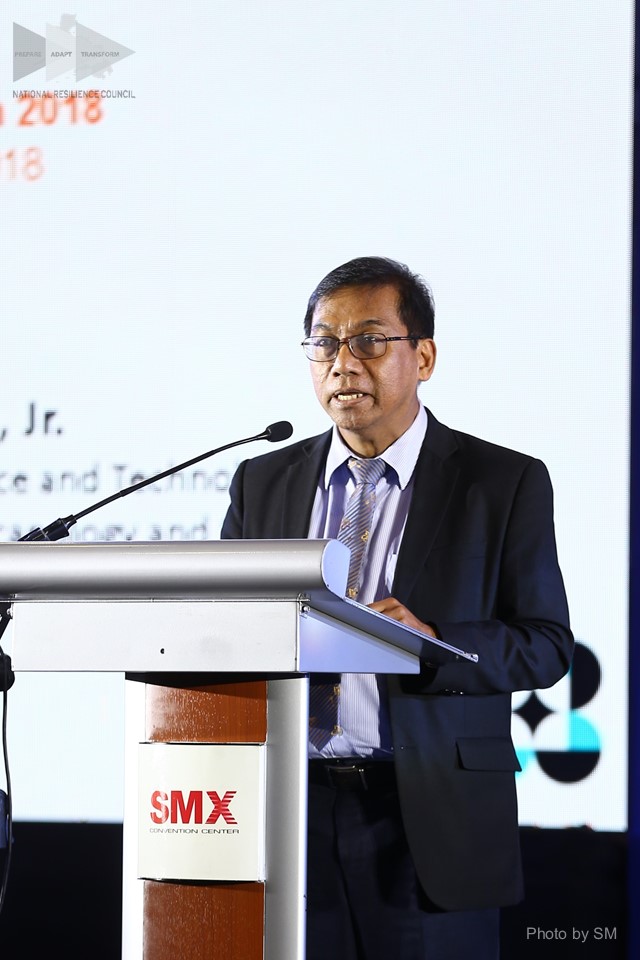
DOST Undersecretary for Disaster Risk Reduction and Climate Change Dr. Renato Solidum, Jr. 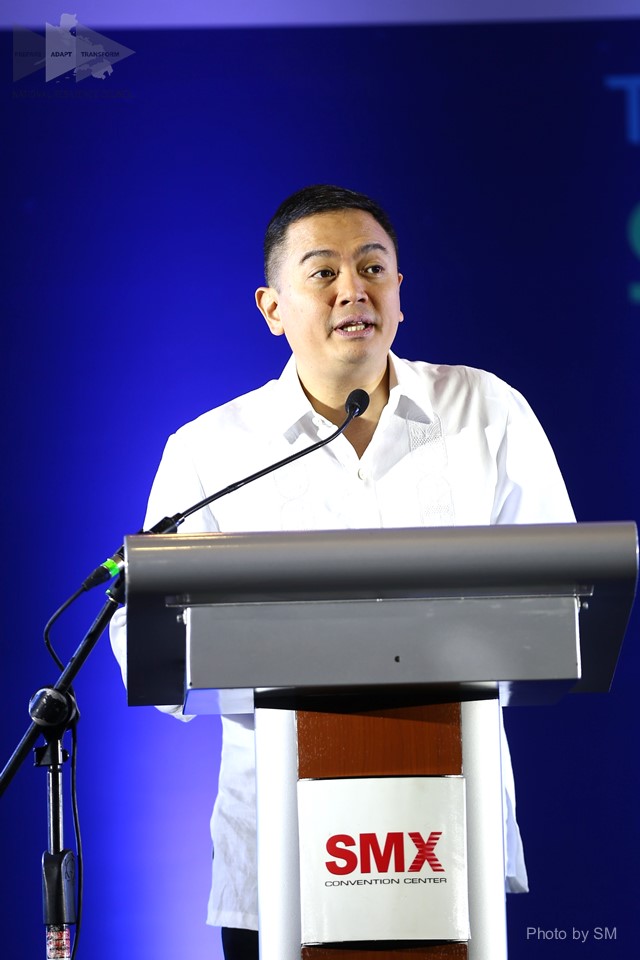
Bataan Provincial Governor Albert Garcia 
Cagayan de Oro City Mayor Oscar Moreno
Department of Science and Technology (DOST) Undersecretary for Disaster Risk Reduction and Climate Change Dr. Renato Solidum, Jr. began the first session with a presentation of the Philippine Risk Profile. Six NRC local government partners represented by their respective local chief executives (LCEs) to showcase their initial gains which focused on certain aspects of their resilience strategy such as: resilient human development systems; science-based governance; environmental sustainability; resilience building partnerships and development through climate-related hazards management; sustainable livelihood and human security.

Naga City Mayor John Bongat 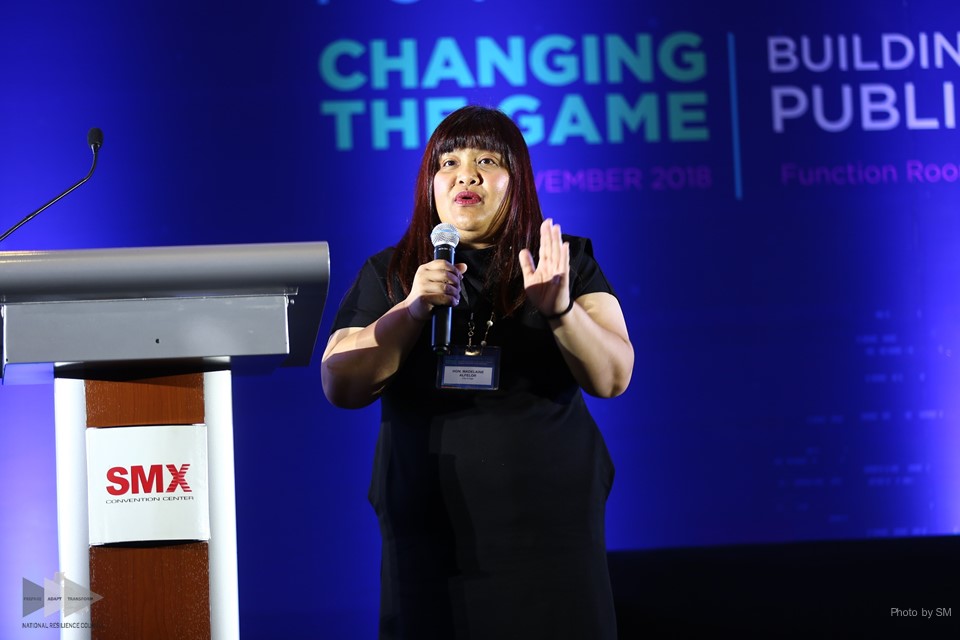
Iriga City Mayor Madelaine Alfelor 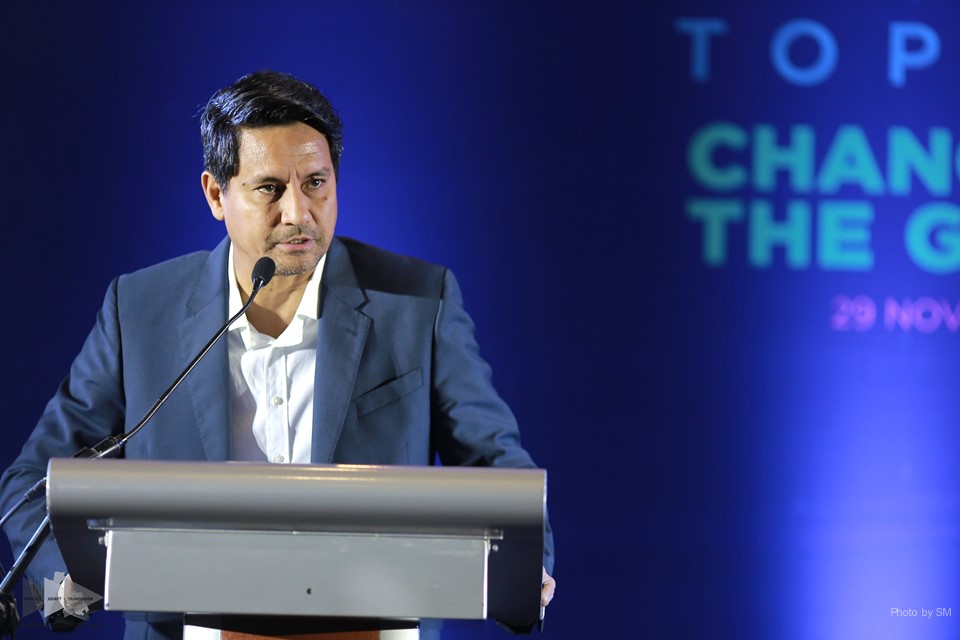
Ormoc City Mayor Richard Gomez 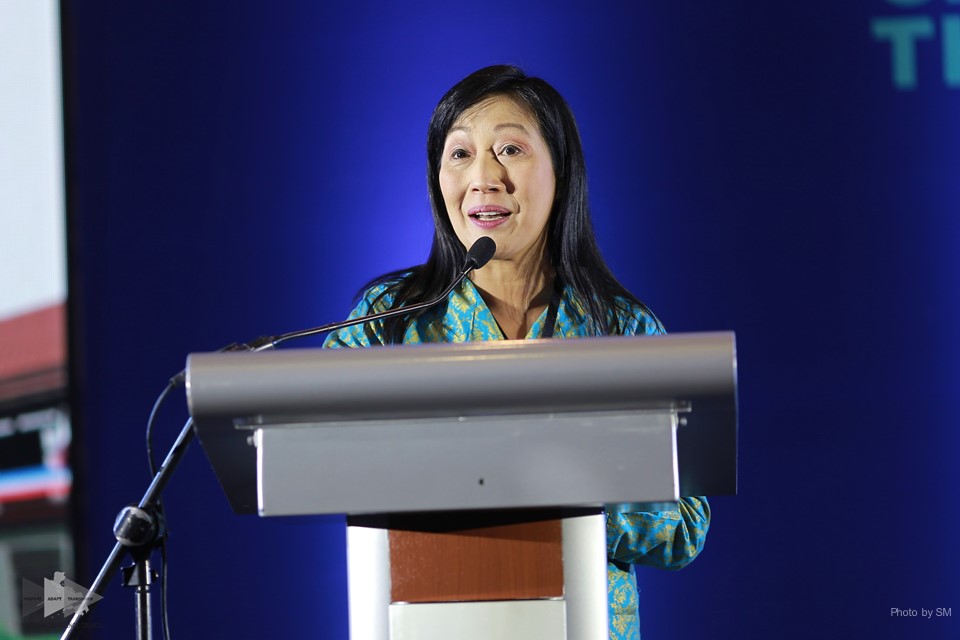
Zamboanga City Mayor Maria Isabelle Climaco
UNISDR Regional Office for Asia & the Pacific Bangkok Chief Ms. Loretta Hieber Girardet, the session reactor, acknowledged the country’s level of understanding risk, although there is still an incomplete picture of losses at the local level. She also pointed out the importance of utilizing both the government and private sector in pushing further the resilience agenda, and sharing the country’s experiences beyond its waters for others need to know its efforts. Zuellig Family Foundation Executive Vice President Mr. Austere Panadero moderated the discussion between the speakers and the guests.
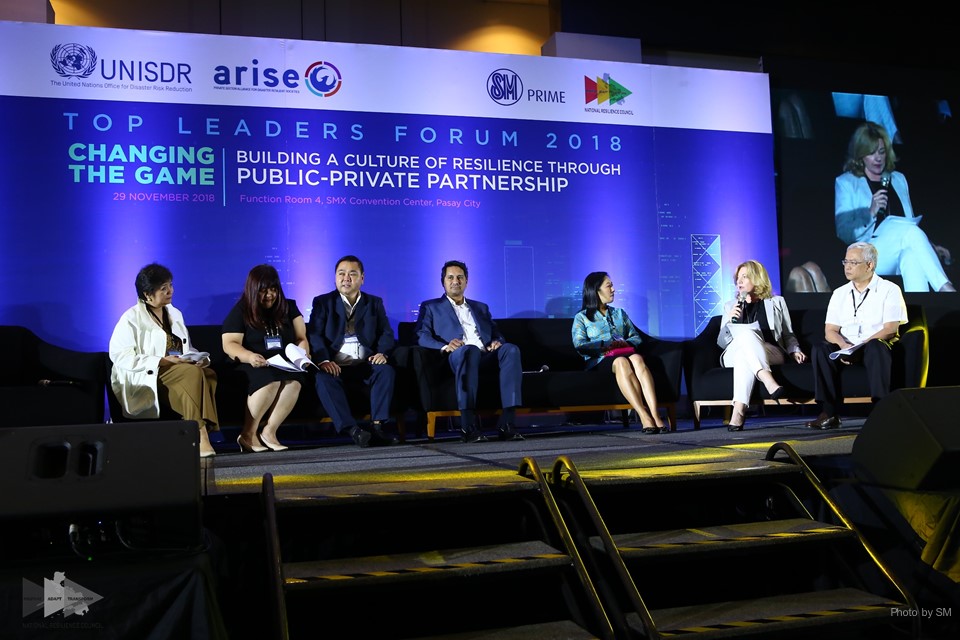
UN’s Loretta Girardet reacts to the LCE’s presentations. 
A photo opportunity after the local government session.
SM’s BCP
Following the local government session, SM Prime—represented by SM Supermalls Vice President and ARISE Philippines Secretariat Ms. Liza B. Silerio—also launched its Business Continuity Program (BCP) for Small and Medium Enterprises, an initiative that will provide SM tenants access to private data storage and protect critical business data.
Small and Medium Enterprises
The second plenary session invited international and local resilience experts to discuss the critical role small and medium enterprises play on disaster risk reduction and management and on the development of a sustainable local economy. ARISE Private Sector Co-Chair Mr. Dale Sands shared his experience in leading the small business study conducted in New Orleans 11 years after Hurricane Katrina. World Bank Risk Resiliency Program Consultant Ms. Elisea Gozun then moderated a discussion between the speaker and the panel, which comprised of Department of Trade and Industry (DTI) Regional Operations Group Undersecretary Zenaida Maglaya; Zamboanga City Administrator, Concurrent Local Economic Investment Promotions Officer & NRC Focal Person for Local Economy Ms. Marie Angelique “Apple” Go; and Philippine Disaster Resilience Foundation (PDRF) Executive Director Veronica Gabaldon.
Human Security
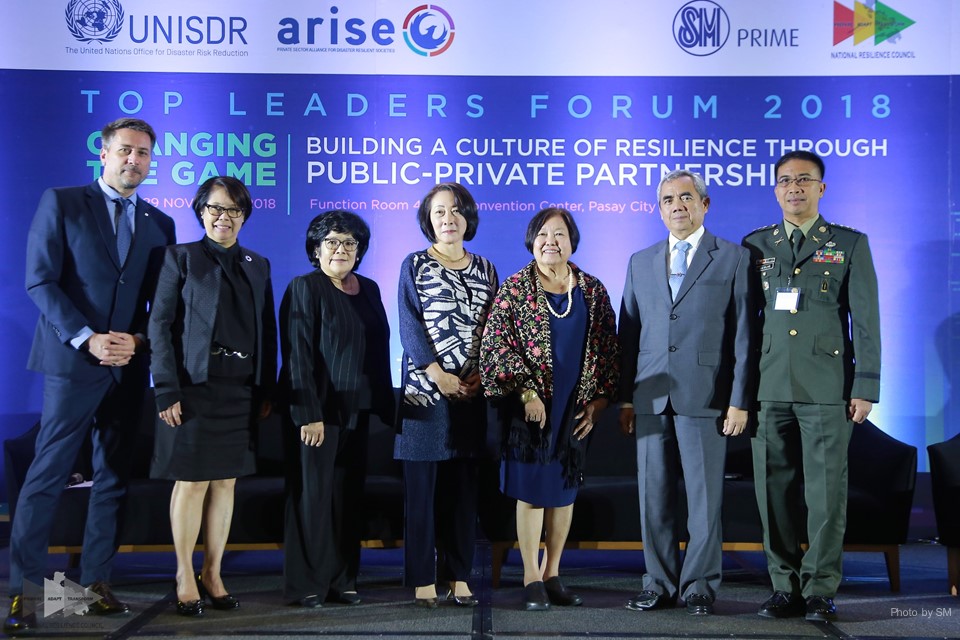
Disasters play a part in how conflict plays out in communities. The panel on human security, moderated by NRC President Antonia Yulo Loyzaga, consisted of: International Committee of the Red Cross (ICRC) Country Director Martin Thalmann; SM Supermalls Consultant for Disaster Risk Reduction VADM Alexander Pama; Joint Task Force Zamboanga City Chief Col. Leonel Nicolas; and CCAR in the Philippines Project Leader, Ateneo de Manila University (ADMU) Master in Disaster Risk Reduction (MDRR) Professor and Co-Director and Manila Observatory Science Research Fellow Dr. Emma Porio. The third discussion had panelists explore the link between disaster risk and risk governance in specific sub-national, national and international contexts.
Disaster Risk Reduction Investments

The last session had local experts share their organizations initiatives that support the Sendai Framework priority to invest in DRR for resilience. The discussion, moderated by PDRF Chief Resilience Officer Mr. Guillermo M. Luz, was joined by Office of Civil Defense Deputy Administrator for Administration Assistant Secretary Kristoffer James Purisima, Department of Public Works and Highways (DPWH) Undersecretary Maria Catalina Cabral, SM Supermalls Vice President and ARISE Philippines Secretariat Ms. Liza Silerio, Iloilo City Councilor Dr. Candace Magdalane Tupas and PDRF President Mr. Rene Meily.
![]()
